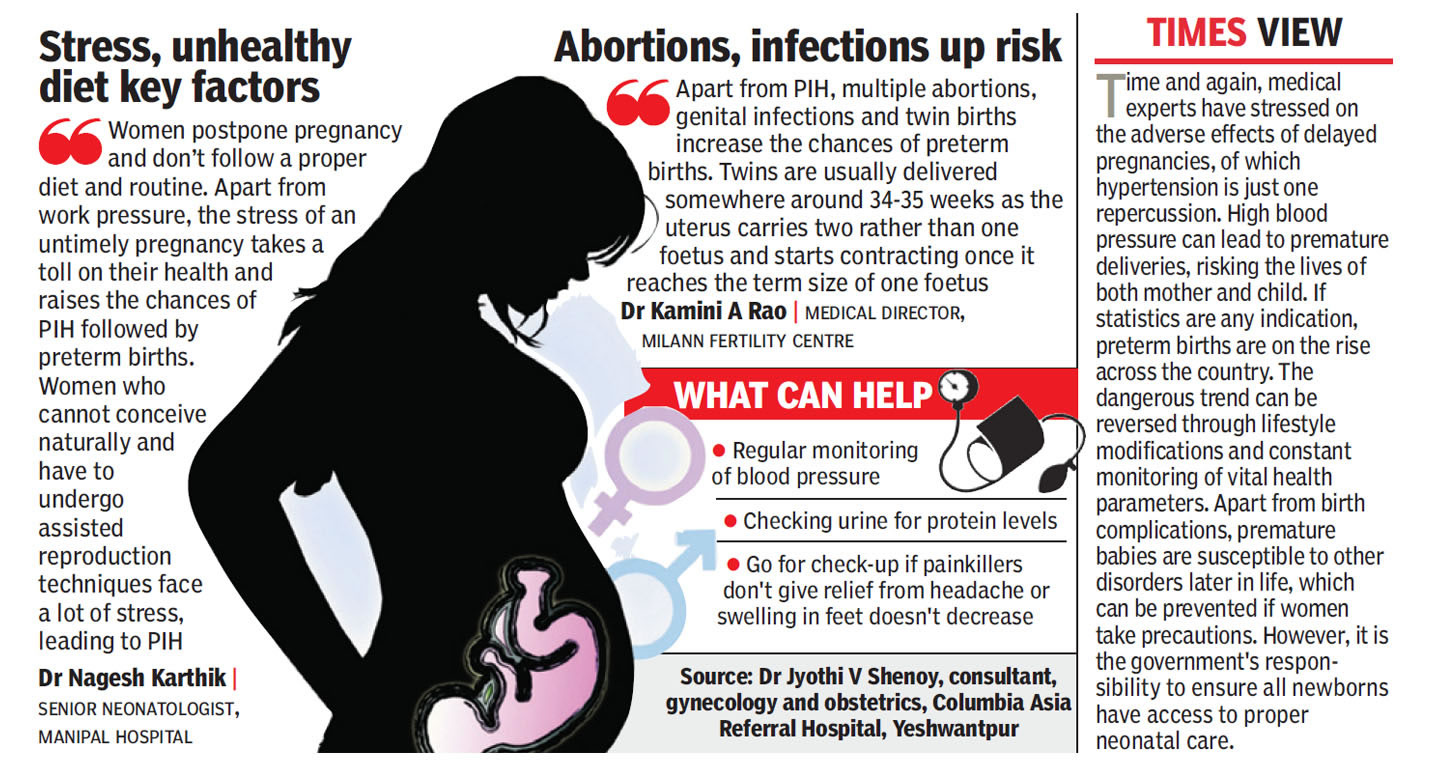Docs: 50% of preterm births linked to pregnancy-induced hypertension
- Home
- News & Media
- Docs: 50% of preterm births linked to pregnancy-induced hypertension
WORLD PREMATURITY DAY

Blame Late Marriages, Obesity And Lack Of Awareness For Rising Incidence
After suffering a couple of miscarriages, Neelam, 30, had to undergo a preterm delivery because of high blood pressure. The infant, born after 27 weeks, weighed merely 520 grams and had multiple complications — respiratory trouble, sepsis, uro-genital problems and a heart condition. He was on ventilator and underwent a surgery to close an opening near a blood vessel. It was only after three months that Neelam could take home her bundle of joy.
Even Malini, 38, developed pregnancy-induced hypertension (PIH) after five months. In her 29th week, she gave birth to a baby girl weighing 750 grams, through an elective caesarean. The newborn needed ventilator support and was discharged after 40 days.
Of the total number of premature births witnessed in the city (20% of all deliveries), half can be attributed to PIH or pre-eclampsia, say neonatologists and gynaecologists. Dr Nagesh Karthik, senior neonatologist, Manipal Hospital, said: “It is a threat to both the mother and the baby. Complications include high blood pressure, which is usually accompanied by seizures, leading to unconsciousness. Seizures are periods of disturbed brain activity that can cause episodes of decreased alertness and convulsions. In such cases, only a premature delivery can save the child.”
Explaining the causes behind the increasing incidence of PIH, Dr Shubha Rama Rao, senior consultant and head of obstetrics and gynaecology at St Martha’s Hospital, said: “Late marriages, obesity and multiple pregnancies are to blame. Family history of PIH in the mother and her siblings, low socio-economic status and lack of awareness are some other factors leading to preterm births.” Dr Rao sees at least 25 PIH cases a month.
Pregnancy-induced hypertension not only curbs the foetus’ growth but also has an adverse impact on the mother’s health. Dr Beena Jeysingh, consultant, obstetrics and gynaecology at Motherhood, Sarjapur, said, “If the blood pressure is not monitored regularly and the patient is not on adequate hypertensive medication, the fluid around the foetus becomes scanty, the blood supply gets compromised and the mother can have convulsions or develop chances of cerebral haemorrhage and liver and kidney troubles leading to acute urinal failure. She may also have heavy internal bleeding.”
Plan pregnancy in 20s, shun smoking and drinking
“Women can prevent PIH by not delaying pregnancy. Even fertility is at its peak in 20s in both men and women. Lifestyle also has a major role to play. Habits like smoking can cause a placental infection, which can trigger hypertension Smoking and drinking also compromise the normal function of the placenta”, said Dr Jeysingh. Sharing some other solutions, Dr Anita K Mohan, gynaecologist at Fortis Hospitals, said: “Regular antenatal checkups, monitoring of BP and maintaining a healthy weight during pregnancy can help curb/diagnose PIH at an early stage. A 30-minute daily walk is advisable. Excessive intake of ghee, rice, sweets and fried food needs to be avoided.”
(Some names have been changed)
